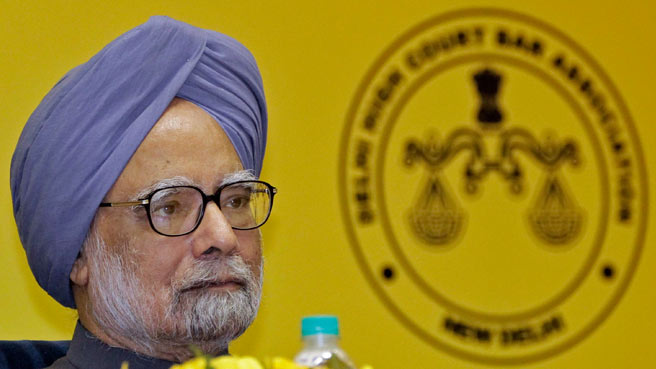
New Delhi, October 12: Voicing concern over frivolous and vexatious use of RTI Act, Prime Minister Manmohan Singh on Friday said the citizens' right to know should definitely be circumscribed if it encroaches on an individual's privacy.
"There is a fine balance required to be maintained between the right to information and the right to privacy, which stems out of the fundamental right to life and liberty. The citizens' right to know should definitely be circumscribed if disclosure of information encroaches upon someone's personal privacy. But where to draw the line is a complicated question," he said.
Addressing the seventh convention of central information commissioners, the Prime Minister said, "There are concerns about frivolous and vexatious use of the Act in demanding information disclosure of which cannot possibly serve any public purpose."
Singh said such queries besides serving little productive purpose are also a drain on the resources of public authorities, diverting precious man-hours that could be put to better use.
"Sometimes information covering a long time-span or a large number of cases is sought in an omnibus manner with the objective of discovering an inconsistency or mistake which can be criticised," he said.
Touching upon the area of public-private partnerships, the Prime Minister said blanket extension of the RTI Act to such bodies may discourage private enterprises to enter in partnership with public sector whereas a blanket exclusion may harm accountability of public officials.
The Prime Minister's remarks come close on the heels of the Supreme Court as also the Central Information Commission's adverse criticism of frivolous RTI applications.
Stressing on the privacy issue, Singh said the issue of a separate legislation on privacy is under consideration of an expert group under Justice A P Shah.
Referring to a recent Supreme Court order terming information commissions as judicial bodies, the Prime Minister said the government has decided to go in for review of the verdict before the apex court.
Singh said there was also a need to change perceptions about the right to information, noting that it should not be viewed as an irritant "but something that is good for us collectively".
"Rights cannot stand in isolation and must always be accompanied by reciprocal obligation...I believe that all of us share a responsibility to promote more constructive and productive use of the Right to Information Act. This important legislation should not only be about criticising, ridiculing and running down public authorities," he said.
Singh said the Act should be more about promoting transparency and accountability, spreading information and awareness and empowering the citizen.
"I believe that the right to information can be utilised for even better results to the benefit of our country and the people. It needs to be remembered that the ultimate goal of the legislation is to induce more efficiency in the work of the government and help it serve the people better," he said.
Earlier, speaking on the occasion, minister of state for personnel and training V Narayanasamy said there is a need to create awareness about responsible use of the Act.
"It has to be ensured that it (information) does not infringe upon personal sensitive information of individuals. Personal liberty is very important. Each society has its own concept of privacy. There is need to define what is personal information and what is sensitive information," he said.
He said people using the RTI Act to expose corruption must be protected and Whistleblowers' Protection Bill is a step in that direction.








Comments
Add new comment